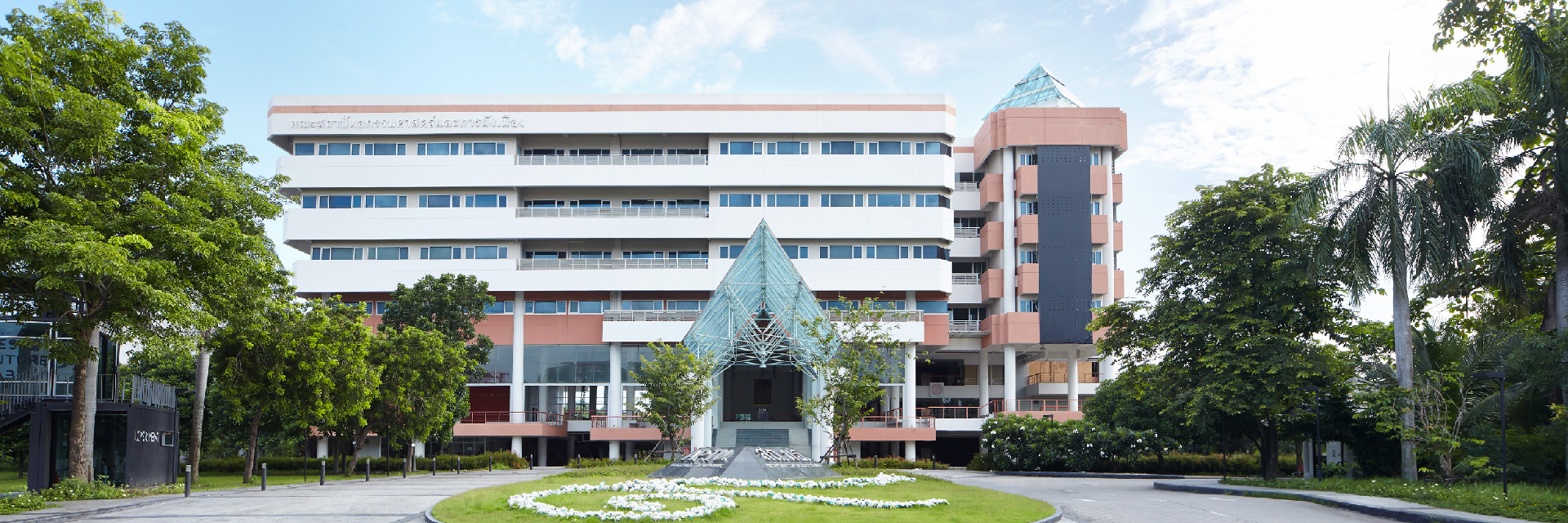Quality Assurance
Policies and Guildlines for Quality Assurance
Faculty of Architecture and Planning, Thammasat University has a policy of quality assurance and academic standards in accordance with the philosophy of architecture education emphasizing the application between fundamental science and technology with arts and management science. This results in the accordance between the architecture creation progress and the modern society along with the development of arts and culture of the nation through effective management processes.
Since Faculty of Architecture and Planning, Thammasat University offers the unique architectural education with dynamic and flexible curriculum, students could enroll in the courses based on their preferences and could also develop the courses to align with the changing economy and society. As the academic correspondence is emphasised, quality assurance will assist the reflection of these differences.
The Goal of Quality Assurance in Education
To provide academic excellence in teaching, research, academic services to society and arts and culture maintenance of the nation, which will ensure that the School has provided the high-quality education and produce quality graduates to the society as stated in Thammasat University’s education policies, Faculty of Architecture and Planning provides a Quality Assurance in Education guide which can be improved and developed to suit various situations. This guide could be used as a model for institutions in the field of creative thinking.
Scope of Quality Assurance in Education
Faculty of Architecture and Planning, Thammasat University uses the quality assurance system covering all current and future undergraduate, graduate and doctoral students. This system covers all departments in the faculty and is consistent with the University's philosophy of education which is “the education and research in science aiming to promote academic work, teaching, research, academic service to society and preserve the arts and culture of the nation.” and the School’s philosophy of education
Mechanism of Quality Assurance in Education
Research and Quality Assurance in Education Board has referred to Mechanism of Quality Assurance in Education by The Higher Education Commission (MUA), Office for National Education Standards and Quality Assessment (ONESQA), Thammasat University and indicators which reflect the identity of the School in composing the Quality Assurance in Education guide and Self Assessment Report. The School has operated on indicators and quality elements in each academic year including following two sections.
- The internal quality assurance refers to the quality control activities within the school to be in accordance with the School’s ideology, vision, mission and the implementation of quality assurance of Thammasat University. The Higher Education Commission (MUA) assumes the responsibility of the internal quality assurance.
- The external quality assurance refers to the quality control activities within the school, together with monitoring and evaluate the entire system by external organizations, to ensure that be in accordance with the School’s ideology, vision, mission and the implementation of quality assurance of Thammasat University. The Higher Education Commission (MUA) assumes the responsibility of the external quality assurance.
Detailed Information on Education Quality Assurance
★ Evaluation criteria of research, creative works and academic works
★ Journal in TCI Database
★ Academic Journal List
Components and Quality Indicators
- Academic Year 2016
- Academic Year 2015
- Academic Year 2014
- Academic Year 2013
- Academic Year 2012
- Academic Year 2011
- Academic Year 2010
- Academic Year 2009
- Academic Year 2008
- Academic Year 2007
Evaluation of quality assurance in education
- Academic Year 2015
- Academic Year 2014
- Academic Year 2013
- Academic Year 2012
- Academic Year 2011
- Academic Year 2010
- Academic Year 2009
- Academic Year 2008
- Academic Year 2007
Knowledge Management (KM)
Knowledge management: KM is the collection, organization, exchange and application of knowledge within organizations by developing the system from data to information to initiate knowledge and wisdom.
